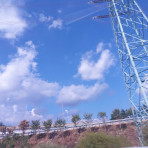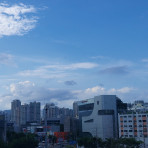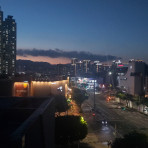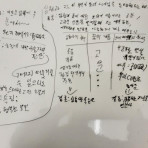Hong Kong is now over, says China’s former good friend
본문
Tue, 13 Feb 2024 22:02:00 -0500

Once seen as a good friend of China’s and former chairman of Morgan Stanley in Asia, Stephen Roach has said Hong Kong is over, attributing the city’s “demise” to its domestic politics, China’s structural problems and global developments namely worsening U.S.-China tensions.
“It pains me to admit it, but Hong Kong is now over,” Roach wrote in a commentary in the Financial Times on Monday.
“Since the handover to China in 1997, the Hang Seng index has been basically flat, up only about 5%. Over that same period, the S&P 500 has surged more than fourfold; even mainland China’s underperforming Shanghai Composite has far outdistanced the Hong Kong bourse.”
Roach said the turning point for Hong Kong’s decline was when former Chief Executive Carrie Lam introduced the extradition bill that triggered large-scale democratic demonstrations in 2019. Beijing’s subsequent imposition of the national security law in 2020 “shredded any remaining semblance of local political autonomy,” and cut the 50-year transition period to full Chinese takeover by half, he pointed out.
With the political change came an economic downturn on the back of waning confidence in the business and investment environment, as well as the legal framework, as reflected by foreigners, firms and even locals leaving the city.
According to Roach, Hong Kong’s decline was due to a confluence of three factors. The first being local politics. A relatively stable environment was shaken by the 2019-2020 protests, which resulted in the Beijing-centric national security law.
Second was China’s economic structural problems. While the Hong Kong stock market has always played a leveraging role in the mainland economy, the Chinese economy has recently “hit a wall”. Structural problems, especially with high debt, deflation and an aging population, compounded by the impact of the COVID-19 epidemic and the real estate crisis, have weighed on the Hong Kong market.
Global developments are also not helping, primarily the worsening U.S.-China rivalry since 2018. In addition, the United States’ “friendshoring” campaign has put pressure on Hong Kong’s Asian allies to choose sides between the U.S. and China, driving a wedge between the city and its trading neighbors.
A “shock bomb”
Financial commentator Ngan Po Kong described the commentary as a “shock bomb” which could prompt others to re-evaluate the political risks of doing business in Hong Kong, given Roach wasn’t just an investment banker, but holds sway in economic, political and business circles.
“Roach has been a ‘great friend’ of China’s for many years. He is basically optimistic about China's economic reform and opening up, whether it is political or financial market performance. You can say he is a representative of the mainstream voice on Wall Street, an important voice that represents investment banks and financial institutions,” Ngan said in a Radio Free Asia Cantonese talk show.
Separately, the American law firm Latham & Watkins LLP, is cutting off access to its international database for its Hong Kong lawyers this month, according to a separate FT report, citing unnamed sources familiar with the matter
The report said the move underscores the growing difficulties for multinational companies operating in Hong Kong, which made its name as an international financial hub, and comes after Beijing imposed anti-espionage and data laws restricting information flows out of China. The law firm is also separating the Hong Kong database from the rest of Asia to create a new database shared with the Beijing office, the report said.
Hong Kong Chief Executive John Lee has vowed to complete legislation of Article 23 of the Basic Law – Hong Kong’s mini constitution – with laws to prohibit acts of treason, secession, sedition and subversion against Beijing. Public consultation for the draft law ends this month.
Translated by RFA staff. Edited by Mike Firn.

Once seen as a good friend of China’s and former chairman of Morgan Stanley in Asia, Stephen Roach has said Hong Kong is over, attributing the city’s “demise” to its domestic politics, China’s structural problems and global developments namely worsening U.S.-China tensions.
“It pains me to admit it, but Hong Kong is now over,” Roach wrote in a commentary in the Financial Times on Monday.
“Since the handover to China in 1997, the Hang Seng index has been basically flat, up only about 5%. Over that same period, the S&P 500 has surged more than fourfold; even mainland China’s underperforming Shanghai Composite has far outdistanced the Hong Kong bourse.”
Roach said the turning point for Hong Kong’s decline was when former Chief Executive Carrie Lam introduced the extradition bill that triggered large-scale democratic demonstrations in 2019. Beijing’s subsequent imposition of the national security law in 2020 “shredded any remaining semblance of local political autonomy,” and cut the 50-year transition period to full Chinese takeover by half, he pointed out.
With the political change came an economic downturn on the back of waning confidence in the business and investment environment, as well as the legal framework, as reflected by foreigners, firms and even locals leaving the city.
According to Roach, Hong Kong’s decline was due to a confluence of three factors. The first being local politics. A relatively stable environment was shaken by the 2019-2020 protests, which resulted in the Beijing-centric national security law.
Second was China’s economic structural problems. While the Hong Kong stock market has always played a leveraging role in the mainland economy, the Chinese economy has recently “hit a wall”. Structural problems, especially with high debt, deflation and an aging population, compounded by the impact of the COVID-19 epidemic and the real estate crisis, have weighed on the Hong Kong market.
Global developments are also not helping, primarily the worsening U.S.-China rivalry since 2018. In addition, the United States’ “friendshoring” campaign has put pressure on Hong Kong’s Asian allies to choose sides between the U.S. and China, driving a wedge between the city and its trading neighbors.
A “shock bomb”
Financial commentator Ngan Po Kong described the commentary as a “shock bomb” which could prompt others to re-evaluate the political risks of doing business in Hong Kong, given Roach wasn’t just an investment banker, but holds sway in economic, political and business circles.
“Roach has been a ‘great friend’ of China’s for many years. He is basically optimistic about China's economic reform and opening up, whether it is political or financial market performance. You can say he is a representative of the mainstream voice on Wall Street, an important voice that represents investment banks and financial institutions,” Ngan said in a Radio Free Asia Cantonese talk show.
Separately, the American law firm Latham & Watkins LLP, is cutting off access to its international database for its Hong Kong lawyers this month, according to a separate FT report, citing unnamed sources familiar with the matter
The report said the move underscores the growing difficulties for multinational companies operating in Hong Kong, which made its name as an international financial hub, and comes after Beijing imposed anti-espionage and data laws restricting information flows out of China. The law firm is also separating the Hong Kong database from the rest of Asia to create a new database shared with the Beijing office, the report said.
Hong Kong Chief Executive John Lee has vowed to complete legislation of Article 23 of the Basic Law – Hong Kong’s mini constitution – with laws to prohibit acts of treason, secession, sedition and subversion against Beijing. Public consultation for the draft law ends this month.
Translated by RFA staff. Edited by Mike Firn.
좋아요3
이 글을 좋아요하셨습니다
관련링크
등록된 댓글이 없습니다.





































